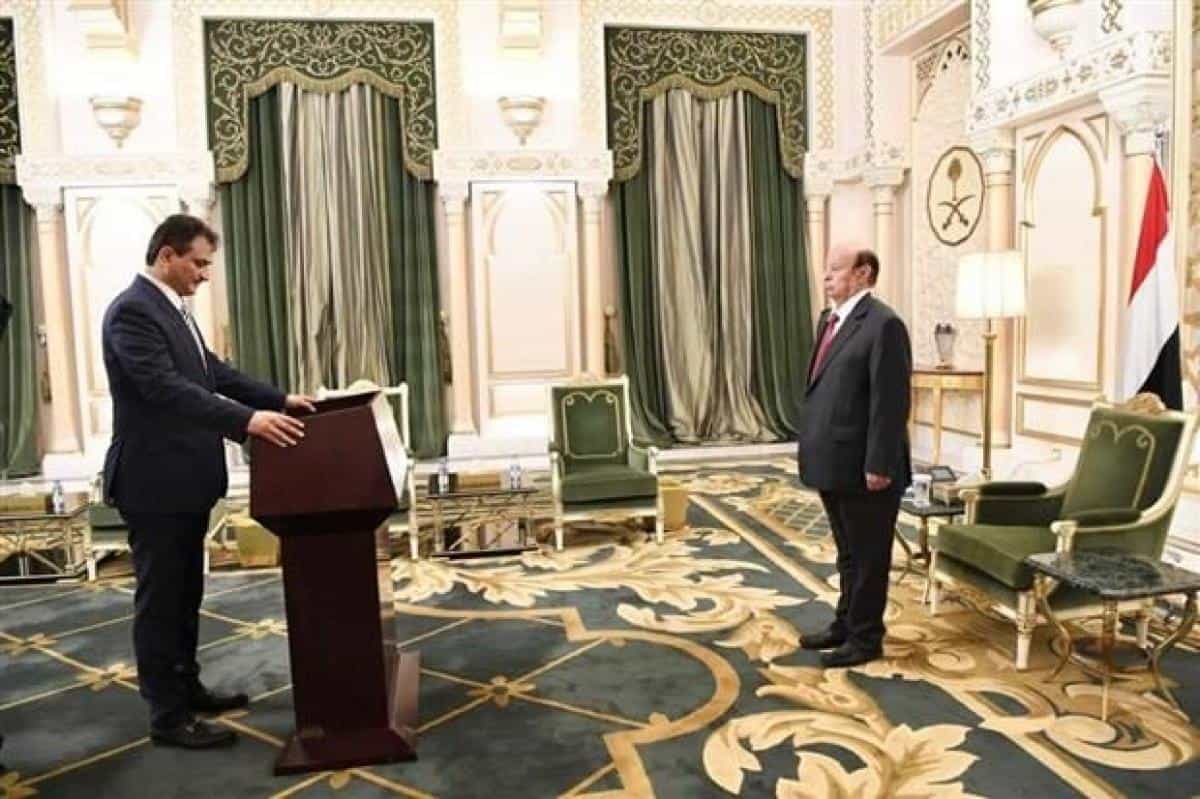
16-08-2020 الساعة 1 صباحاً بتوقيت عدن
Representatives from the Southern Transitional Council (STC) met with Yemeni Prime Minister Maeen Abdulmalik Saeed in Riyadh on August 13 to discuss the creation of a new government that will form the basis of a power-sharing agreement. The formation of a new government aims to revive the implementation of the Riyadh Agreement, which stalled again after the STC declared self-rule over southern governorates in April (Arab News, August 14). The declaration was followed by deadly clashes between STC forces and those aligned with Yemeni President Abdrabbuh Mansur Hadi. The power sharing agreement, as well as the fact that Hadi left his exile in Saudi Arabia before the meeting was held to receive medical treatment in the United States, serves as evidence of the Yemeni government’s loss of legitimacy and control over key political outcomes, as well as the need to find a successor (Middle East Monitor, August 12).
President Hadi’s legitimacy as the country’s leader has been tenuous since the GCC initiative first led to his appointment in 2012, which eventually saw him controversially overrule the outcomes of the National Dialogue Conference—one of the key catalysts of the ongoing war. These facts alone are enough to point to Hadi being unviable as Yemen’s president, but a string of political missteps since the war began, such as firing his well respected Vice President Khaled Bahah and the rise of the UAE-backed Southern Transitional Council, serve as further evidence that maintaining Hadi as the leader while attempting to wind down the war is entirely untenable. Equally as untenable is moving past Hadi to his controversial Vice President and Islah figurehead, Ali Mohsen al-Ahmar.
The STC, while not universally popular across southern Yemen, has managed to leverage its UAE-trained forces and large, strategically located support base to dictate political settlements with the Yemeni government. The STC has not accomplished this all at once, but through the aggregation of marginal gains, providing enough resistance to force the government’s hand but not so much that it provokes an enduring, larger scale conflict—at least not yet—that could push its Emirati backers into a decision between them and Riyadh.
"These appointments further solidify the STC’s powerbase in the country’s to be a primary political voice in any future political settlement"
The new power sharing agreement being discussed in Riyadh highlights these marginal gains and the steady erosion of Hadi’s government. Government representation is expected to be split between north and south, and STC Secretary General Ahmed Hamid Lamlas from Shabwa was appointed governor of Aden. STC General Mohammad Ahmed Salim al-Hamedi was selected as Aden’s head of security, a significant departure from the previous agreement that would have seen the STC lose some military authority in the city (Aden Press, July 29). These appointments further solidify the STC’s powerbase in the country’s temporary capital and position the group to be a primary political voice in any future political settlement.
Any legitimacy that Hadi has left comes primarily from outside of Yemen and with every gain made by the STC, the Hadi government’s legitimacy recedes. Adding the 74-year-old Hadi’s documented heart condition to the situation and the need for a succession plan becomes even more imperative. If the Saudi coalition and international community ever hope to facilitate a fruitful political settlement, they will likely need to take the risk of identifying Hadi’s successor or successors who can take the reins before the transition ever even begins. Hadi’s track record with the National Dialogue Conference does not bode well for what has become an even more complex and fragmented political scene. Simply moving down the government hierarchy is also an untenable plan, not only due to Ali Mohsen being both the Houthi and STC’s nemesis, but also because it would likely be viewed as repeating the same mistakes that led to Hadi’s ascension through the GCC initiative.
"Simply moving down the government hierarchy is also an untenable plan"